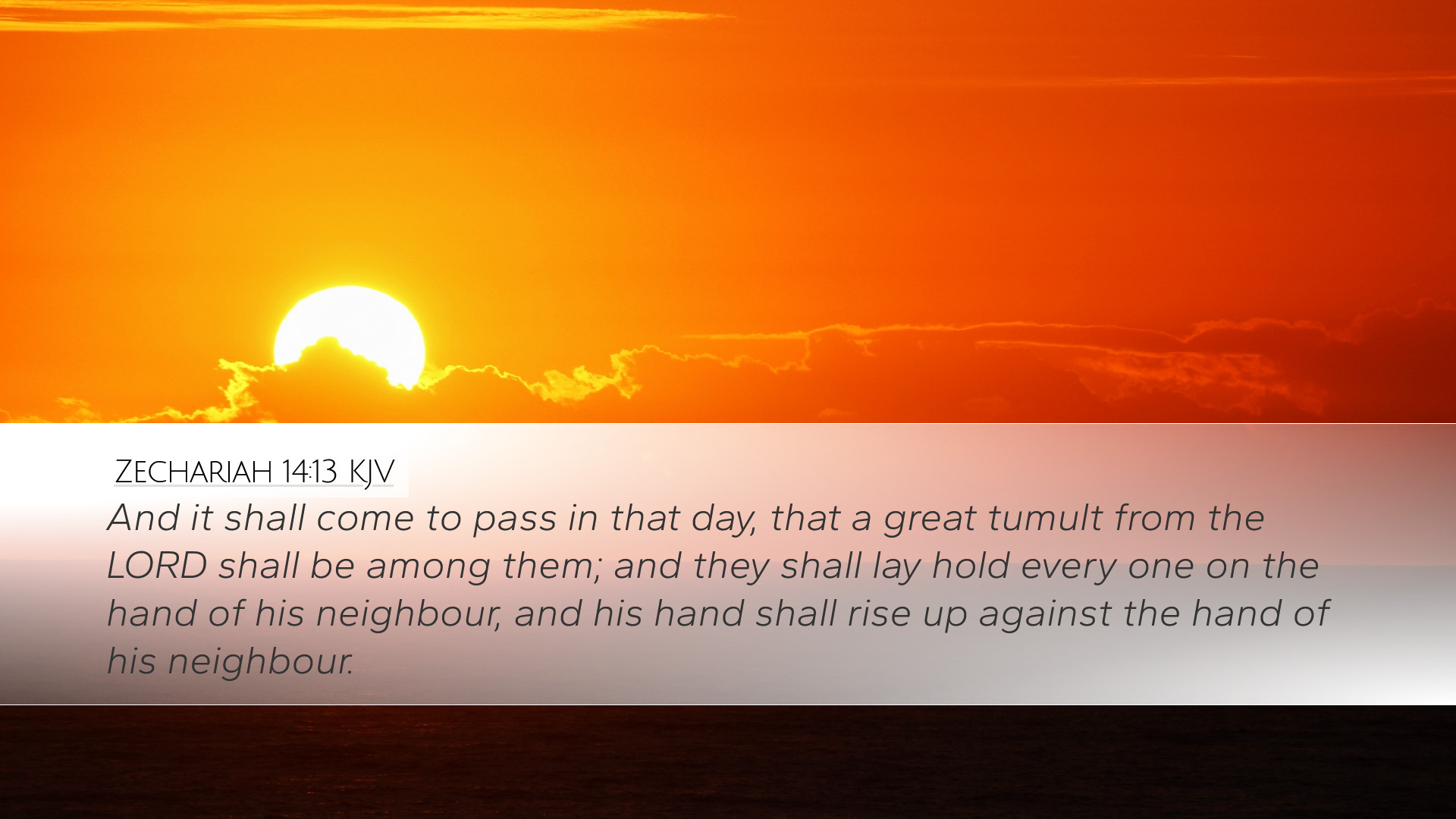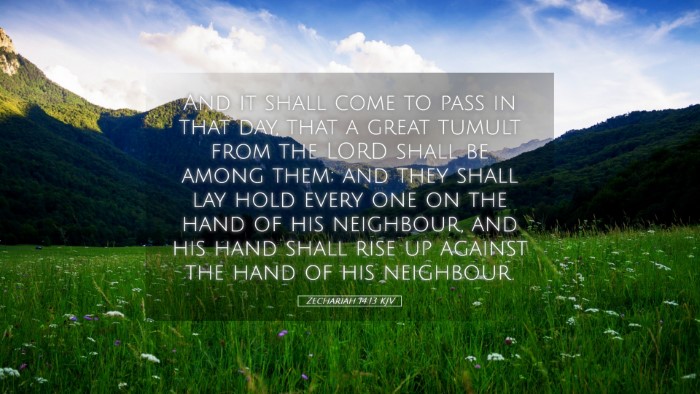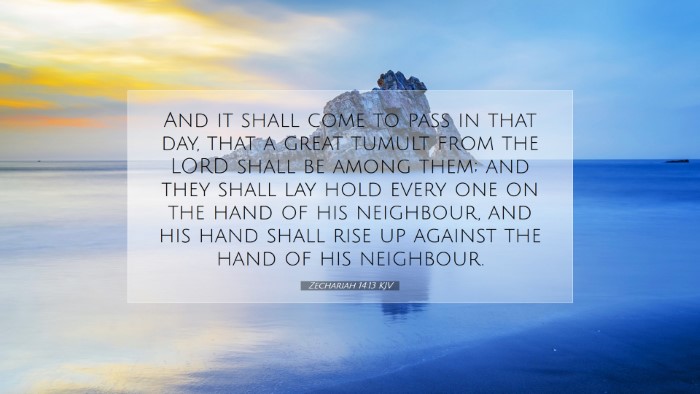Commentary on Zechariah 14:13
Verse: "And it shall come to pass in that day, that a great tumult from the Lord shall be among them; and they shall lay hold every one on the hand of his neighbor, and his hand shall rise up against the hand of his neighbor."
Introduction
This verse from the book of Zechariah offers profound insights into the events surrounding the day of the Lord, a day characterized by divine intervention and chaotic upheaval. Scholars and commentators like Matthew Henry, Albert Barnes, and Adam Clarke provide valuable perspectives on the implications of this tumultuous period.
Contextual Analysis
Zechariah prophesies events that will unfold in a 'day' yet to come, often interpreted as the eschatological period or the time of God's ultimate judgment and restoration. The tense of "shall come to pass" indicates certainty in the prophetic declaration, which is a significant theme throughout Zechariah's writings.
Historical Context
Written during the post-exilic period, Zechariah addresses a community that has returned from Babylonian captivity. The prophecy points to future restoration not only of Jerusalem but also of the people’s spiritual fervor and alignment with God's covenant.
Theological Framework
This passage touches on the broader themes of divine sovereignty, human conflict, and the ultimate reconciliation of God with His people. Understanding the tumult described in the text helps scholars grasp the complex dynamics of God’s justice and mercy.
Verse Analysis
Divine Tumult
Matthew Henry describes the "great tumult from the Lord," emphasizing that this divine disturbance is orchestrated by God as a form of judgment and correction. It reminds us that God’s involvement in human affairs is both direct and purposeful, invoking a fear that leads to a profound reverence.
Social Conflict
Both Albert Barnes and Adam Clarke note that the tumult will incite chaos among the neighboring nations. Each person grasping their neighbor's hand and turning against each other signifies the breakdown of social order and trust. This internal strife showcases the folly of trying to resist God’s plans.
Spiritual Implications
Moreover, the passage serves as a caution for spiritual leaders and the faithful. The tumult reflects not only an external conflict but an internal spiritual war that arises when people stray from God’s guidance. The resulting chaos is indicative of human pride and rebellion against divine authority.
Commentary Insights
- Matthew Henry: He interprets the verse as a warning of the inevitable consequences of ignoring God’s voice. He perceives the tumult as God's way of asserting His sovereignty, leading to circumstances where even allies become antagonists.
- Albert Barnes: Barnes emphasizes the theological significance of divine tumult, arguing that it illustrates the futility of human resistance against divine will. The strife among neighbors is a vivid depiction of human nature's propensity for conflict when divorced from God’s wisdom.
- Adam Clarke: Clarke explores the prophetic nature of this verse, noting that such turmoil among nations points towards the inevitable collision of human pride and divine sovereignty, prophetically securing the return of God’s justice in the world.
Practical Applications
The implications of Zechariah 14:13 extend beyond its immediate historical and theological contexts. It serves as a reminder of the following:
- Unity in Faith: Pastors and church leaders must encourage unity and reliance on God’s guidance to prevent internal chaos, reflective of the chaotic images in this verse.
- Awareness of Divine Sovereignty: Believers should be reminded of God’s ultimate control over world events. Recognizing this can provide comfort during tumultuous societal changes.
- Spiritual Preparedness: The warnings found in this verse should compel theologians and students of scripture to prepare themselves and their communities to remain steadfast in faith amid external and internal conflicts.
Conclusion
Zechariah 14:13 is rich with meaning, embodying themes of chaos in human affairs under divine direction, the vulnerability of humanity to conflict, and the ultimate assurance of God's oversight. As pastors, students, theologians, and Bible scholars reflect on these profound truths, they are equipped to address both the spiritual and practical needs of their communities in a world often marked by turmoil.


